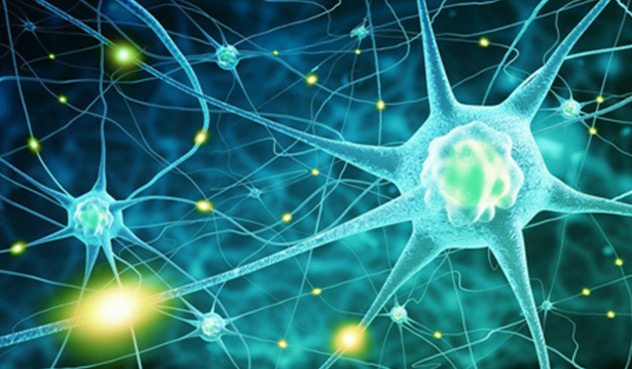
07 Jan Are Imbalanced Neurotransmitters the Root of Your Health Problems?
One would think that something that is imperative to everything we do — all of our movements, thoughts, and feelings — would be taken seriously and looked after. But neurotransmitters — the highly specialised chemicals that coordinate the transmission of signals from one brain cell to another — play a substantial role in mental illness, and with one in five adults in the United States suffering from a mental health disorder, we should be doing more to support healthy levels. With the average human brain containing over 100 billion nerve cells, each connected to 10,000 other cells, equaling 1,000 trillion connections in the brain, and neurotransmitters being the chemicals that connect all of these, suboptimal levels can have catastrophic effects.
What role do neurotransmitters play in our mental health?
Neurotransmitters regulate emotions, fear, pleasure, joy, anger, mood, memory, cognition, attention, concentration, alertness, energy, appetite, cravings, sleep, and perception of pain. They can be inhibitory, excitatory, or modulatory. Some examples of inhibitory, or calming, neurotransmitters are serotonin and GABA, both of which have a soothing effect on the brain; they inhibit, or block, certain brain signals. Low serotonin levels are linked to depression, and it is involved in social behaviour, mood, appetite and digestion, sleep, and memory. GABA is meant to keep anxiety in check, manage attention deficit hyperactivity disorder (ADHD), and improve mood. Some examples of excitatory neurotransmitters are dopamine, epinephrine, and histamine. Dopamine, a more well-known excitatory neurotransmitter is involved with the brain’s reward system, and is crucial for healthy motivation and focus levels. Epinephrine, or adrenaline, which is both a neurotransmitter and a hormone, is released into the bloodstream to prepare your body for dangerous situations by increasing your heart rate and blood pressure. Histamine is involved with inflammatory responses, such as the regulation of your immune responses to foreign bodies, like allergens.
What happens when neurotransmitters are imbalanced?
When neurotransmitters become unbalanced, we may experience depression and anxiety (serotonin), anger and lack of motivation (dopamine), panic attacks, stress, and inability to calm down (GABA), heart problems, burnout, and intolerance to exercise (noradrenaline), and memory and focus problems (acetylcholine). Children with suboptimal neurotransmitter levels — often because of malnutrition — are especially likely to experience these issues, such as ADHD, panic attacks, emotional outbursts, lower test scores, and even depression.
A neurotransmitter imbalance can cause or contribute to depression, anxiety, ADHD, bipolar disorder, hormonal and adrenal dysfunction, memory impairment, insomnia, and even migraines. Optimal neurotransmitter levels rely on a fine balance; low dopamine levels, for example, are associated with Parkinson’s disease, while too-high dopamine levels are associated with schizophrenia.
Neurotransmitters really do play a role in just about every single process that happens in the body and brain. That’s why it is so crucial, and potentially life-changing, to ensure optimal levels.
How do I know if I have a neurotransmitter imbalance?
So you must be wondering about how to maintain, or, if necessary, restore, healthy neurotransmitter levels. Perhaps you have one of the disorders listed above or you’ve been trying to feel better for a long time with no luck.
Why do neurotransmitters become imbalanced?
So, what exactly gets in the way of optimal neurotransmitter levels? Neurotransmitters are primarily made in the gut, so having a healthy gut and efficient digestive system is crucial. Unfortunately, most people living on the Western diet do not have a healthy microbiome, meaning they are not making the optimal or possibly even average levels of neurotransmitters that they need. For example, 90% of your serotonin is made in the second brain, or the gut. Taking prebiotics and probiotics, eating enough fiber, and avoiding processed foods can make a big difference in gut health. Another factor that can disrupt neurotransmitter levels is heavy metals – especially lead, mercury, and tin- which are neurotoxic and can disrupt neurotransmitter function and create oxidative stress.
What can be done about a neurotransmitter imbalance?
Your brain needs the proper nutrients every day to manufacture optimal neurotransmitter levels. Nutrients to support neurotransmitter synthesis include mainly vitamins (vitamin C, B vitamins, folate) and amino acids (tryptophan, tyrosine). At Finding Ground, I help to tailor someone’s diet and supplement program to their individual needs in order to support neurotransmitter balance.
Healthy serotonin levels can be supported with free-range eggs, turkey, fish, mangoes, bananas, walnuts, flax seeds, and chia seeds; dopamine is supported with eggs, citrus fruits, avocado, and fish; and for GABA, eat fermented foods like sauerkraut and kimchi, brown rice, spinach, and beans. A diet of whole foods, with plenty of vegetables, beans and legumes, some fruits, some meat, some fish, and some eggs, and very limited if no sugar and processed foods, will contribute to optimal neurotransmitter levels. In addition to diet, regular exercise, especially HIIT (high intensity interval training) produce endorphins, which can be both inhibitory and excitatory, but all of which can drastically improve mood. When choosing food, ensuring that it is sourced organically and locally, without the use of toxic pesticides, is crucial.
Healthy neurotransmitters have become a thing of luxury in many parts of the world. People struggling with malnutrition are far more likely to have suboptimal neurotransmitter levels which can lead to a range of mental health and physical health disorders, as described above.
See my Scheduling page to make an appointment for bio-individualized nutritional therapy.
